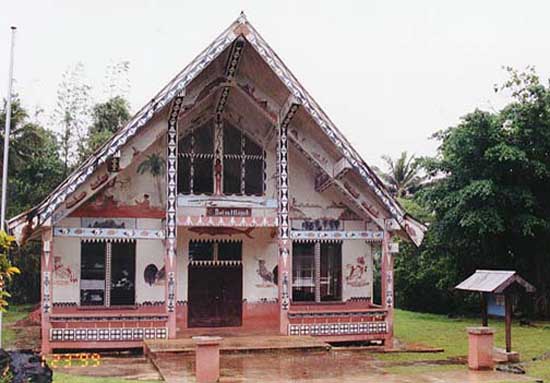
I was 25 when I fell in love with Palau. I was a Peace Corps volunteer in Micronesia, assigned to Saipan, north of Guam and I I kept hearing about Palau
Pacific Islands
By P.F. Kluge
This love of islands gets embarrassing. I just phoned my travel agent and, while on hold waiting to learn whether I could get from Columbus, Ohio, to the Pacific islands of Palau for less than $3,000, I listened to a taped message that recounted tropical island charms: swaying palms, balmy breezes, white-sand beaches, underwater wonderlands, Technicolor sunsets. It made me wince. Can anyone say the word "paradise" without a wised-up grin? We all know better, don't we? And yet, with whole continents still unvisited, I keep returning to a small, remote place I've seen a dozen times before.
Why? I was 25 when I fell in love with Palau. I was a Peace Corps volunteer in Micronesia, assigned to Saipan, north of Guam. I liked Saipan fine. But I kept hearing about Palau. With my first sight of that island archipelago—hulking, mangrove-fringed Babelthuap; the rooftops and causeways of the old Japanese colonial capital of Koror; the flotilla of tiny limestone islets stretching down toward the World War II battlegrounds of Peleliu and Angaur—my life was changed forever. Palau was poaching, plant-smelling air; liquid, velvety nights; shades of blue and green I'd never seen before. It was a daily awareness of light and heat, land and sea, sweat and rain, growth and decay. It was people, a community that was part Bali Hai, part Peyton Place, gossipy, conspiratorial, and not pleased at hearing from outsiders that they were living in Paradise. Most islands have an offshore feel. They're a short flight or a ferry ride from larger places. But, like other Pacific islands, Palau is out there, the end of the line, a dot of land in the world's largest sea. Its greatest gift is the delicious sense that you've gotten as far away as is possible from the rest of your life. In Palau, I walk around giddy, thinking of the people back home. "If they could see me now," I'm pleased to tell myself, knowing that they can't.
With time, I've developed some theories about small islands. Not theories. Laws. Everything is connected. Things die down, not out; nothing is ever over. And one more: The more you leave behind—work, career, possessions, all your mainland occupations—the better is your taste of islands. Sure, I concede there's something clichéd about this love of islands, something that smacks of shipwreck cartoons and purple prose. There's also something youthful about the writers who have been this way before—Melville, Stevenson, Michener—that may make them easy to discount. Still, once again I pass on other places and point toward Palau, as though rereading a book I've read before, sighing over what I marked and underlined when I was younger, worrying about it when I am there, wondering about it when I'm gone.
Discover the perfect Pacific Islands vacation with National Geographic's online Trip Finder (powered by iExplore).
The information in this story was accurate at the time it was published, but we suggest you confirm all details before making travel plans.
© 2001 National Geographic Society. All rights reserved.
